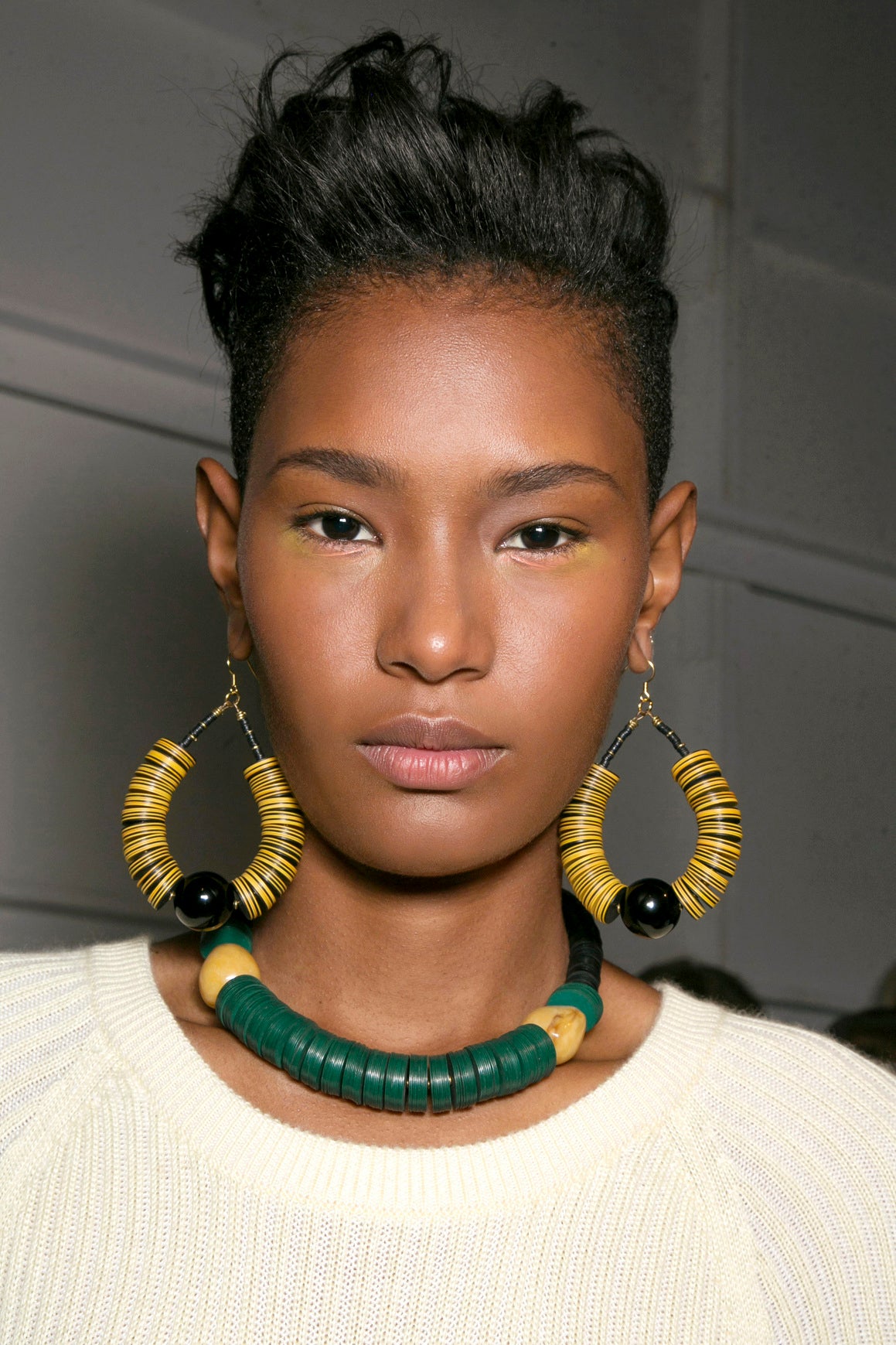
It’s no secret that your skin is not the same at age 30 that it was at 16 or even 25. And, while Black may not crack it definitely shows signs of aging in other capacities. We’ve tapped the leading dermatologists in the country to get their take on practices and product to know (and use) to stay forever young!
THE COLLAGEN CONNECTION
According to leading dermatologist, Dr. Gary Goldfaden, 25 to 35 percent of our body’s protein content consists of collagen. Over time, the percentage decreases due to glycation, sun damage, environmental stressors and general aging. “After 30, we lose about a teaspoon of collagen a year,” says Brooke Jackson, M.D., founder of Skin Wellness Dermatology Associates in Durham, North Carolina, opening next month. Then there is another significant drop during menopause. Thankfully, there have been advancements in skin care products to help. Trufora’s Night Serum 85 ($80, trufora.com), for example, is designed to restimulate collagen production. Ingestible collagen is also an option. Reserveage Nutrition Collagen Replenish Powder (below left) aims to boost the body’s own collagen and elastin production. Retinoids can also support collagen stimulation. “I tell my patients that the use of retinoid is like a deposit into your skin’s 401(k). You do not see the benefit immediately, but in the long term you will absolutely reap the benefits,” says Jackson. Try Dr. Dennis Gross Ferulic + Retinol Wrinkle Recovery Peel ($88, Sephora) two to three times a week.
DAILY DEFENSE
“Aging from cumulative exposure to the sun is known as extrinsic aging,” says Nada Elbuluk, a dermatologist at the NYU Langone Medical Center. Sun protection is the first and one of the most important components of an anti aging regimen. “I recommend the use of a sunscreen with SPF 30+ every morning, year-round,” says Elbuluk. Apply it all the way down to the décolleté, and remember that sunscreen lasts only for about two hours. So if you’re going to be outside for an extended period, it needs to be reapplied. It’s also an excellent idea to get in your antioxidants daily. They fight free-radical damage (details on the next page), which causes premature aging. Some great ones are vitamin C, green or black tea, coffee and the extraordinary resveratrol.
GET TO THE GOO LIFE…STRESS LESS!
Stress is just one of many factors that affect our skin—it’s also one of the biggest. “Stress is an immune mediator. Whether it’s physical or emotional, it compromises your immune system and can exacerbate conditions like high blood pressure, diabetes, asthma, eczema or acne,” says Jackson. How to manage tension depends on its cause. “Stress experienced from a work deadline is different from the kind you’d feel when dealing with a family illness,” Jackson continues. “If all you have is five minutes, unplug—no cell, no computer. With the lights off, lie down and take slow deep breaths.”
SLEEPING BEAUTY
Sleep deprivation, another bad lifestyle habit, can show itself in the form of undereye puffiness and sallow, pale and dull-looking skin. Lucky for us, a new crop of creams can help with the skin-rejuvenating process that takes place while we sleep. The sweet spot for the number of hours you should be getting in each night is around seven. Your sleep routine is just as important. So nix the noise and light, eat a small dinner and—as difficult as it may be—disconnect from your devices. All these distractions will interfere with the quality of your nocturnal rest and, ultimately, affect your skin.
CLEAN LIVING
Not to stress you out any further, but environmental factors significantly affect the aging process. Thanks to those trusted antioxidants, we can regain some control over the deleterious impact. “Topical antioxidants can direct cell metabolism to increase normal sloughing of the skin. They can improve fine lines and make the skin appear brighter,” says Amy McMichael, M.D., chair of dermatology at Wake Forest Baptist Medical Center in Winston-Salem, North Carolina. Washing your face twice daily is important to remove dirt, debris, other pollutants and dead skin cells, but there’s a fine line between cleaning and overdoing it. On the one hand, “not washing can exacerbate current skin conditions and lead to a buildup of dead skin, which could make one’s face appear duller,” says Elbuluk. But cleansing too often or with too harsh of a product can actually dry out or irritate your skin and make you look older. So find your balance. Wash and moisturize (then apply an antioxidant and SPF!) daily and exfoliate as needed.
This article originally appeared in the January 2016 issue of ESSENCE magazine.





